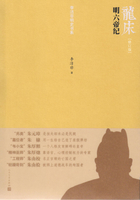"Marie Antoinette paid for the musical education of the French singer, Garat, and pensioned him for her private concerts.
"Her Majesty was the great patroness of the celebrated Viotti, who was also attached to her private musical parties. Before Viotti began to perform his concertos, Her Majesty, with the most amiable condescension, would go round the music saloon, and say, 'Ladies and gentlemen, Irequest you will be silent, and very attentive, and not enter into conversation, while Mr. Viotti is playing, for it interrupts him in the execution of his fine performance.
"Gluck composed his Armida in compliment to the personal charms of Marie Antoinette. I never saw Her Majesty more interested about anything than she was for its success. She became a perfect slave to it. She had the gracious condescension to hear all the pieces through, at Gluck's request, before they were submitted to the stage for rehearsal. Gluck said he always improved his music after he saw the effect it had upon Her Majesty.
"He was coming out of the Queen's apartment one day, after he had been performing one of these pieces for Her Majesty's approbation, when Ifollowed and congratulated him on the increased success he had met with from the whole band of the opera at every rehearsal. 'O my dear Princess!' cried he, 'it wants nothing to make it be applauded up to the seven skies but two such delightful heads as Her Majesty's and your own.'
--'Oh, if that be all,' answered I, 'we'll have them painted for you, Mr.
Gluck!'--'No, no, no! you do not understand me,' replied Gluck, 'I mean real, real heads. My actresses are very ugly, and Armida and her confidential lady ought to be very handsome:
"However great the success of the opera of Armida, and certainly it was one of the best productions ever exhibited on the French stage, no one had a better opinion of its composition than Gluck himself. He was quite mad about it. He told the Queen that the air of France had invigorated his musical genius, and that, after having had the honour of seeing Her Majesty, his ideas were so much inspired that his compositions resembled her, and became alike angelic and sublime!
"The first artist who undertook the part of Armida was Madame Saint Huberti. The Queen was very partial to her. She was principal female singer at the French opera, was a German by birth, and strongly recommended by Gluck for her good natural voice. At Her Majesty's request, Gluck himself taught Madame Saint Huberti the part of Armida.
Sacchini, also, at the command of Marie Antoinette, instructed her in the style and sublimity of the Italian school, and Mdlle. Benin, the Queen's dressmaker and milliner, was ordered to furnish the complete dress for the character.
"The Queen, perhaps, was more liberal to this lady than to any other actress upon the stage. She had frequently paid her debts, which were very considerable, for she dressed like a Queen whenever she represented one.
"Gluck's consciousness of the merit of his own works, and of their dignity, excited no small jealousy, during the getting up of Armida, in his rival with the public, the great Vestris, to whom he scarcely left space to exhibit the graces of his art; and many severe disputes took place between the two rival sharers of the Parisian enthusiasm. Indeed, it was at one time feared that the success of Armida would be endangered, unless an equal share of the performance were conceded to the dancers.
But Gluck, whose German obstinacy would not give up a note, told Vestris he might compose a ballet in which he would leave him his own way entirely; but that an artist whose profession only taught him to reason with his heels should not kick about works like Armida at his pleasure.
'My subject,' added Gluck, 'is taken from the immortal Tasso. My music has been logically composed, and with the ideas of my head; and, of course, there is very little room left for capering. If Tasso had thought proper to make Rinaldo a dancer he never would have designated him a warrior.'
"Rinaldo was the part Vestris wished to be allotted to his son. However, through the interference of the Queen, Vestris prudently took the part as it had been originally finished by Gluck.
"The Queen was a great admirer and patroness of Augustus Vestris, the god of dance, as he was styled. Augustus Vestris never lost Her Majesty's favour, though he very often lost his sense of the respect he owed to the public, and showed airs and refused to dance. Once he did so when Her Majesty was at the opera. Upon some frivolous pretext he refused to appear. He was, in consequence, immediately arrested. His father, alarmed at his son's temerity, flew to me, and with the most earnest supplications implored I would condescend to endeavour to obtain the pardon of Her Majesty. 'My son,' cried he, 'did not know that Her Majesty had honoured the theatre with her presence. Had he been aware of it, could he have refused to dance for his most bounteous benefactress?
I, too, am grieved beyond the power of language to describe, by this mal apropos contretemps between the two houses of Vestris and Bourbon, as we have always lived in the greatest harmony ever since we came from Florence to Paris. My son is very sorry and will dance most bewitchingly if Her Majesty will graciously condescend to order his release!'
"I repeated the conversation verbatim, to Her Majesty, who enjoyed the arrogance of the Florentine, and sent her page to order young Vestris to be set immediately at liberty.
"Having exerted all the wonderful powers of his art, the Queen applauded him very much. When Her Majesty was about leaving her box, old Vestris appeared at the entrance, leading his son to thank the Queen.
"'Ah, Monsieur Vestris,' said the Queen to the father, you never danced as your son has done this evening.'
"'That's very natural, Madame,' answered old Vestris, 'I never had a Vestris, please Your Majesty, for a master.'















